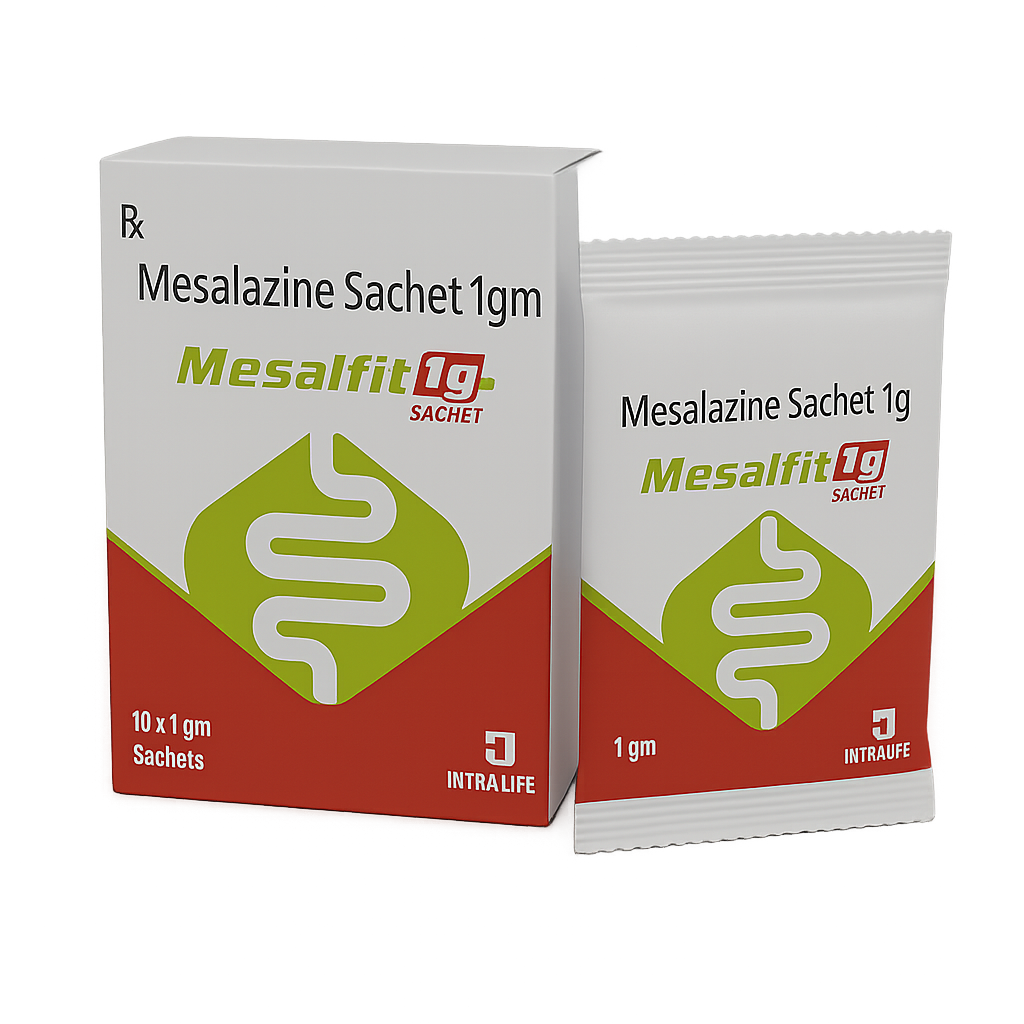
MESALFIT SACHET
MRP: 650
Packaging: 10 x 1 gm
Pack Type: sachet
Composition:
MESALAZINE 1gm (PR granules)
Indication:
used for the treatment and maintenance of mild to moderate ulcerative colitis and Crohn’s disease. It helps reduce inflammation in the colon by inhibiting the production of inflammatory chemicals, providing relief from symptoms like diarrhea, rectal bleeding, and abdominal pain.
Description:
Mesalazine (1g PR granules), also known as mesalamine, is an anti-inflammatory drug used for the treatment and maintenance of remission in ulcerative colitis and other forms of inflammatory bowel disease (IBD). The PR (prolonged-release) granule form allows targeted drug release in the colon and rectum, where inflammation occurs.
Mesalazine works locally in the bowel to reduce inflammation by inhibiting the production of prostaglandins and leukotrienes, which are involved in the inflammatory process.
Tags:
- Treats and maintains remission in ulcerative colitis
- Delivers localized anti-inflammatory action directly to the colon
- Reduces symptoms like rectal bleeding, diarrhea, abdominal pain
- Fewer systemic side effects due to targeted release
- Convenient once-daily or twice-daily dosing with granules
Usage Information
Dosage
Adults: Usually 1–2 grams daily, taken in divided doses or once daily as directed by a physician. Granules are typically taken orally, directly from the sachet, and swallowed without chewing. May be taken with or without food. Drink sufficient water after administration. Duration of treatment may vary based on severity and response.
Side Effects
bdominal pain, bloating Nausea or flatulence Headache Rash or itching (allergic reaction) Rare: kidney dysfunction, pancreatitis, or blood disorders Seek medical help if experiencing unusual tiredness, dark urine, or yellowing of the skin.
Contraindications
Hypersensitivity to mesalazine, salicylates, or excipients Severe liver or kidney impairment History of mesalazine-induced myocarditis or pericarditis Caution in patients with asthma or gastric ulcers
